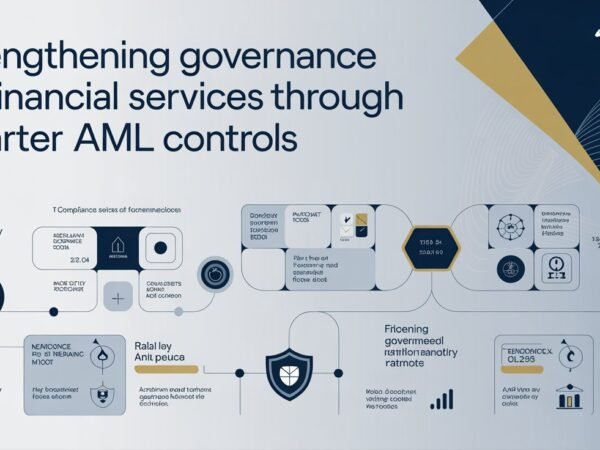Introduction
Fleet management is a critical aspect of many businesses, encompassing the administration and coordination of vehicles to ensure optimal use, maintenance, and operation. Effective fleet management is essential for companies to maintain efficiency, reduce costs, and stay competitive. This article explores various strategies to boost efficiency and cut costs effortlessly in fleet management, offering actionable insights for businesses looking to optimize their operations.
Understanding Fleet Management
Fleet management involves various activities, including vehicle acquisition, maintenance, fuel management, telematics, compliance, driver management, cost management, and vehicle disposal. Each component plays a crucial role in ensuring the smooth operation of a fleet, and challenges in any of these areas can lead to inefficiencies and increased costs. Understanding these components is the first step toward implementing effective fleet management practices.
Strategies to Boost Efficiency
One primary strategy to boost efficiency in fleet management is the implementation of advanced telematics. Telematics systems provide real-time tracking of vehicles, allowing fleet managers to monitor locations, driving behavior, and vehicle performance. The data collected through telematics can be used to optimize routes, reduce idle times, and ensure that vehicles are used efficiently. Additionally, telematics analytics can help predict maintenance needs, thus preventing unexpected breakdowns and costly repairs.
Optimizing maintenance schedules is another crucial strategy for enhancing fleet efficiency. Predictive maintenance, enabled by telematics and data analytics, helps identify potential issues before they become significant problems. Regular maintenance check-ups ensure that vehicles remain in good working condition, reducing downtime and extending the fleet’s lifespan. By keeping vehicles well-maintained, businesses can avoid the high costs of emergency repairs and replacements.
Streamlining the vehicle acquisition process is also essential for efficient fleet management. Choosing suitable vehicles that meet the business’s specific needs can lead to significant cost savings. When acquiring new cars, consider fuel efficiency, durability, and maintenance costs. Negotiating better deals with suppliers and exploring options for leasing rather than purchasing can also contribute to cost reductions.
Driver management is another critical component of fleet management. Training programs focusing on safe and efficient driving practices can reduce fuel consumption, lower maintenance costs, and fewer accidents. Monitoring driver behavior through telematics can help identify areas for improvement and incentivize safe driving practices. Rewarding drivers for good performance can also boost morale and encourage adherence to company policies.
Utilizing fleet management software is a highly effective way to manage the various aspects of fleet operations. These software solutions offer a range of features, including vehicle tracking, maintenance scheduling, fuel management, and reporting. By automating many administrative tasks associated with fleet management, businesses can reduce overhead costs and improve overall efficiency. The data provided by fleet management software also offers valuable insights to inform decision-making and strategic planning.
Cost Reduction Techniques
Fuel management is a significant area where cost reductions can be achieved. Monitoring fuel consumption and implementing strategies to optimize fuel use can lead to substantial savings. Using fuel cards, optimizing routes, and reducing idling times are all effective ways to manage fuel costs. Additionally, promoting fuel-efficient driving practices among drivers can lower fuel expenses.
Controlling maintenance costs is another important aspect of cost reduction in fleet management. Bulk purchasing of parts and using in-house maintenance facilities can lead to savings. As mentioned earlier, regular maintenance check-ups also help prevent costly emergency repairs. By keeping detailed records of maintenance activities, businesses can track expenses and identify areas for further savings.
Another effective strategy is reducing administrative costs through automation. Fleet management software can automate reporting and record-keeping, reducing the need for manual data entry and paperwork. This saves time and reduces the likelihood of errors, leading to more accurate and efficient operations.
Finally, effective vehicle disposal strategies can help maximize the resale value of old vehicles. Knowing when to sell and understanding the market value of cars can lead to better returns. By disposing of vehicles at the right time, businesses can avoid high maintenance costs associated with older vehicles and reinvest the proceeds into acquiring newer, more efficient models.
Compliance and Safety
Staying compliant with regulations is essential for avoiding fines and ensuring the fleet’s safety. Regular safety audits and inspections help identify potential issues and maintain compliance. Training drivers on safety protocols and regulations ensures they know and adhere to the required standards, enhancing the fleet’s safety and efficiency.
Several businesses have successfully implemented these strategies, improving efficiency and reducing costs. For example, a logistics company that adopted advanced telematics and predictive maintenance saw significantly reduced fuel consumption and maintenance expenses. Similarly, a delivery service that optimized its vehicle acquisition process and trained its drivers in fuel-efficient driving practices achieved substantial cost savings and improved operational efficiency.
Conclusion
In conclusion, effective fleet management is crucial for boosting efficiency and cutting costs. Businesses can significantly improve their fleet operations by implementing advanced telematics, optimized maintenance schedules, streamlined vehicle acquisition, driver management, and fleet management software. Additionally, managing fuel consumption, controlling maintenance costs, automating administrative tasks, and adopting effective vehicle disposal strategies contribute to cost reductions. Staying compliant with regulations and ensuring safety further enhances the fleet’s efficiency. By following these strategies, businesses can optimize their fleet management practices, leading to better performance and increased profitability.













